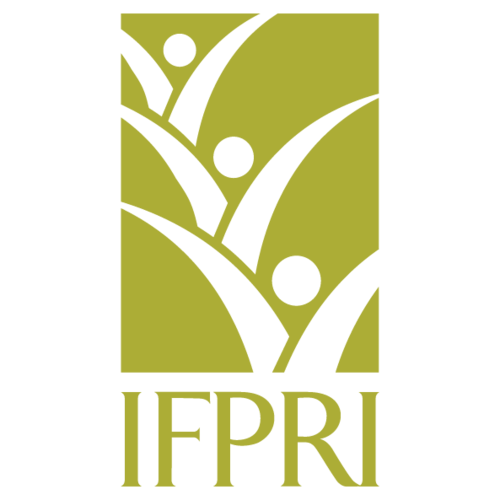Focal point
Location
About IFPRI
The International Food Policy Research Institute (IFPRI) provides research-based policy solutions to sustainably reduce poverty and end hunger and malnutrition in developing countries. Established in 1975, IFPRI currently has more than 500 employees working in over 50 countries. It is a research center of theCGIAR Consortium, a worldwide partnership engaged in agricultural research for development.
Vision and Mission
IFPRI’s vision is a world free of hunger and malnutrition. Its mission is to provide research-based policy solutions that sustainably reduce poverty and end hunger and malnutrition.
What We Do
Research at IFPRI focuses on six strategic areas:
- Ensuring Sustainable Food Production: IFPRI’s research analyzes options for policies, institutions, innovations, and technologies that can advance sustainable food production in a context of resource scarcity, threats to biodiversity, and climate change. READ MORE
- Promoting Healthy Food Systems: IFPRI examines how to improve diet quality and nutrition for the poor, focusing particularly on women and children, and works to create synergies among the three vital components of the food system: agriculture, health, and nutrition. READ MORE
- Improving Markets and Trade: IFPRI’s research focuses on strengthening markets and correcting market failures to enhance the benefits from market participation for small-scale farmers. READ MORE
- Transforming Agriculture: The aim of IFPRI’s research in this area is to improve development strategies to ensure broad-based rural growth and to accelerate the transformation from low-income, rural, agriculture-based economies to high-income, more urbanized, and industrial service-based ones. READ MORE
- Building Resilience: IFPRI’s research explores the causes and impacts of environmental, political, and economic shocks that can affect food security, nutrition, health, and well-being and evaluates interventions designed to enhance resilience at various levels. READ MORE
- Strengthening Institutions and Governance: IFPRI’s research on institutions centers on collective action in management of natural resources and farmer organizations. Its governance-focused research examines the political economy of agricultural policymaking, the degree of state capacity and political will required for achieving economic transformation, and the impacts of different governance arrangements.
Research on gender cuts across all six areas, because understanding the relationships between women and men can illuminate the pathway to sustainable and inclusive economic development.
IFPRI also leads two CGIAR Research Programs (CRPs): Policies, Institutions, and Markets (PIM) andAgriculture for Nutrition and Health (A4NH).
Beyond research, IFPRI’s work includes partnerships, communications, and capacity strengthening. The Institute collaborates with development implementers, public institutions, the private sector, farmers’ organizations, and other partners around the world.
Resources
Displaying 456 - 460 of 1521Organizational and institutional issues in climate change adaptation and risk management
This report provides some reflections and insights on the level of awareness, practices, and organizational and institutional issues being faced by countries as they adapt to climate change, based on interviews with 87 practitioners working in government agencies, local and international organisations, and think thanks reporting involvement in climate change adaptation. Data were collected in Bangladesh, Ethiopia, Kenya, and Mali using both an e-survey platform and face-to-face interviews.
The child health implications of privatizing Africa’s urban water supply
Can private-sector participation (PSP) in the urban piped water sector improve child
health? The author uses child-level data from 39 African countries during 1986–2010 to show that
introducing PSP decreases diarrhea among urban dwelling children under five years of age by 5.6
percentage points, or 35 percent of its mean prevalence.
Overview [in Southern African Agriculture and Climate Change]
Book chapter
Modern variety adoption and intensification in Indonesian shrimp aquaculture: Are poor farmers included?
Working paper
An assessment of IFPRI's work in Ethiopia during 1995-2010
Ethiopia is one of the most populated and poorest countries in Sub-Saharan Africa and as such has been a high priority country for IFPRI research and capacity-building work. From 1995 to 2004, nearly all of IFPRI’s Ethiopia work was undertaken by Washington-based research teams working on specific themes under various “global research programs” (GRPs). More than 95 percent of IFPRI’s research in Ethiopia during this period was part of four main research themes: (1) Market Development; (2) Poverty and Food Security; (3) Public Investment; and (4) Sustainable Land Management (SLM).




